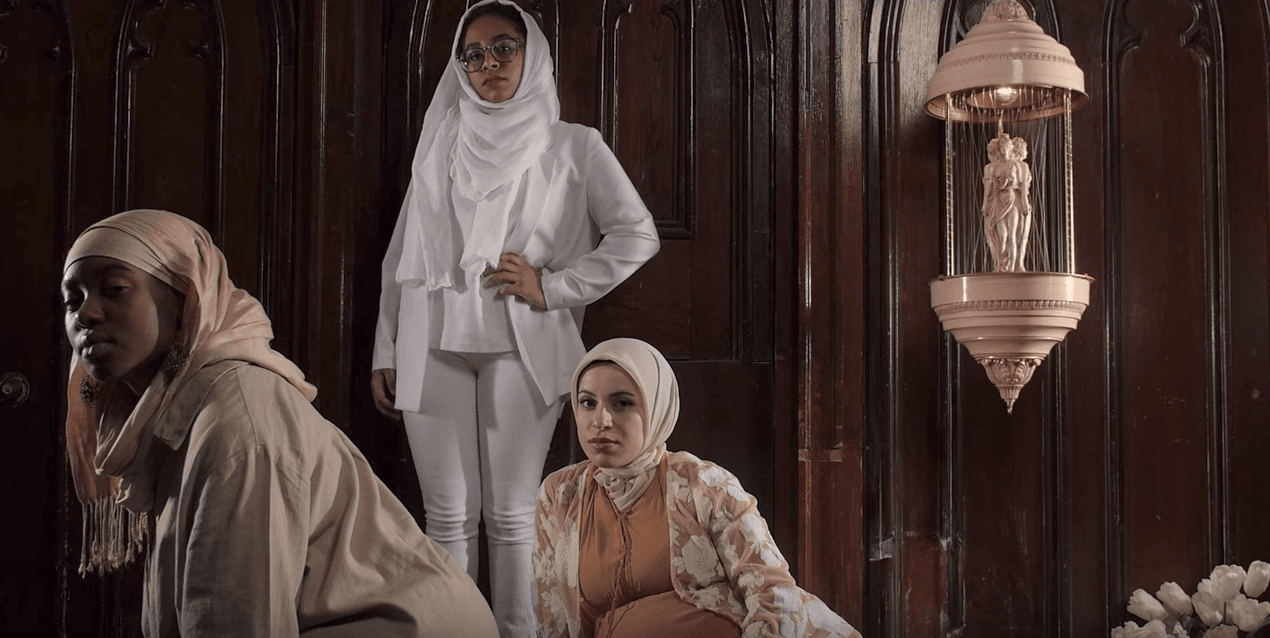Syrian-American musician and activist tackles the daily struggles of wearing a hijab
This is an image from the music video on YouTube for the song, "Hijabi (Wrap My Hijabi)."
The recent attack in Portland, Oregon, has gotten many thinking about the kind of bravery it takes to jump in and help someone being harassed. And also the kind of bravery it takes to go out of your home wearing a visible sign that you're a Muslim.
Both forms of bravery were on display in Portland when two men died trying to help a couple of young women on a train, one of them wearing a hijab.
Mona Haydar, Syrian-American musician and activist, knows about the daily struggles of wearing a hijab, and she decided to tackle that subject in her new rap. Her song is called "Hijabi (Wrap my Hijab)."
Haydar's video begins with a group of diverse women sitting quietly, not moving — almost like they're in a Renaissance painting that comes to life. They're all wearing different kinds of hijabs.
“It’s about women, loving women, no matter where we come from, no matter what we look like, and that it’s our story to tell, when we want to tell it,” says Haydar.
“I’ve heard it a million times, that religion is this ‘divisive thing in the world’ or ‘you seem very smart. You must be brainwashed to wear hijab,'" says Haydar.
And to that, she says, “Implying that I cannot choose to wear hijab for myself is a very patriarchal comment to start with. You know, for some women it’s empowering to take their clothes off, and for me, especially as an American, part of my freedom is in choosing whatever the eff I want,” says Haydar.
She adds that the song also speaks directly to the fact that American Muslims have recently experienced a significant spike in hate crimes against them, especially against women.
“In spite of the trauma, in spite of the oppression, we’re going to turn up," she says. "We’re going to have a great time, we’re going to live our lives out loud, full of joy and celebrate the blessings in our life. And in doing that, allowing the trauma to work itself out.”
The video has caught a lot of attention and with over 1 million views on YouTube, there have been mixed reactions — some hateful.
“I’ve gotten a lot of backlash,” says Haydar. “But one thing that the video has done, which is mysterious to me, is, it’s bridged a gap between those who are like uber Islamaphobic and those who are really conservative Muslims — they both agree they really hate me.”
Haydar laughs and calls it "wildly entertaining" to see the same hateful comments coming from both sides. Including some very devout Muslims who believe the Koran forbids all music.
But that doesn’t really faze Haydar.
"I'm really comfortable where I am. They can have their criticisms," she says.
